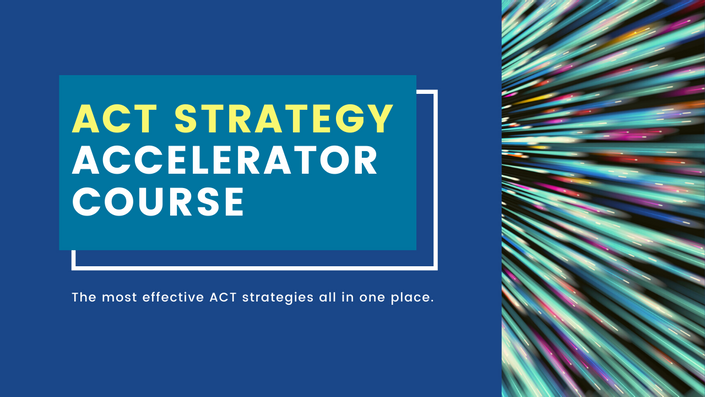Many students see the ACT as an intimidating and stressful task in their lives. With more questions on the exam than minutes to complete it, it can feel like the exam tests sheer speed over intelligence. Clocking in at nearly three hours, the ACT leaves many students feeling like exhaustion is inevitable. But the correct techniques for managing time efficiency can make even the most hesitant students confident about acing the test. Begin by looking at the time and question breakdown for each subject to improve your time management for the ACT.
Subject Breakdown
| Subject | Time | Questions |
|---|---|---|
| English | 45 minutes | 75 questions |
| Math | 60 minutes | 60 questions |
| Reading | 35 minutes | 45 questions |
| Science | 35 minutes | 45 questions |
| Writing | 40 minutes | 1 essay question |
This table shows the four subjects listed in the order they appear on the exam. There is an optional written essay question at the end which adds 40 more minutes. The total time comes out to 2 hours and 55 minutes for the four subjects and 3 hours and 35 minutes for the essay option.
Time Management for the ACT Exam Sections
Here are some tips and tricks for managing your time in each individual section.
English:
There are 45 minutes to answer 75 questions between 5 passages, which means you should aim to complete each one (roughly 15 questions) in 9 minutes.
Tip: Do not read or skim through the passage first. Instead, save time by reading portions of the text as the questions mention them. For questions regarding the overall passage, complete them at the end when you’ve already read through it once.
Math:
This subject gives an hour to answer one minute per question. The ACT authors based the answer choices on common mistakes, so be sure to avoid them by showing your work and working through each problem carefully. Understanding the breakdown of the topics can help you improve your score.
Tip: Try your best to avoid overcomplicating problems. The ACT does not require a calculator, and therefore it is possible to solve all problems without one. If you catch yourself doing extremely complex calculations, you should double-check your work because the solution might be a lot simpler.
Reading:
45 questions between 4 passages can sound overwhelming, but it becomes easier with practice. You can choose to skim through the passages and then answer the questions or answer as you go (like with the English section).
Tip: Familiarize yourself with the types of questions and their answers. You can spot repeated themes among the questions, such as problems about the main idea, vocabulary, development of ideas, and more. You can learn more about each type on the official ACT description of this section.
Science:
This fourth section features 45 questions to complete in 35 minutes across six or seven small passages. You must try to act fast, even after two draining hours.
Tip: There are a few key types of questions that will appear in the science section. It is important to familiarize yourself with them. Become excellent at analyzing graphs and picking out data from a paragraph of information.
Writing:
The essay is a 40-minute timed writing test that focuses on the content’s organization, development of ideas, and use of correct language. Focus on an impactful introduction and conclusion, and aim for more than a page of writing.
Tip: Outline your ideas and paragraph structure in the extra space they provide. It will make it tremendously easier to format your thoughts and quickly jot the contents without worrying about the style.
Best Practices for Time Management for the ACT
- Keep track of time – Bring a watch or keep an eye on a clock so you can pace yourself. Aim to give yourself two minutes at the end of each section to review difficult questions and guess for any you can’t quite figure out.
You don’t want to bring any old watch to the exam – Bring one specifically designed for the ACT! Check out the Testing Timers ACT Pacing Watch and take control of the clock. Use code 15CURVE2021 to save 15% on your purchase.
- Skip Around – If you are unsure how to approach a question, skip it and return to it at the end. Other questions may bring context to the difficult one or help you remember how to solve it, allowing you to save lots of time overall.
- Learn the Breakdown – Take practice tests to expose yourself to the content and adjust to the timing. Awareness is essential to know how much time you have to read a passage or answer a question.
Why Does Time Management for the ACT Matter?
It may seem necessary to rush through the ACT exam, but you can manage with the help of the tricks and tools mentioned above. It may require lots of dedication and practice to master all of these strategies, but it will pay off when you can confidently overcome the challenge of limited time and put more focus into the actual questions of the test. The timing aspect of ACTs trip up many students even more than SATs or other college entrance exams, so these tips are critical to power through your next ACT exam like a champion.


